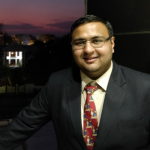Course Information
- 2024-25
- CCP214
- 5-Year B.A., LL.B. (Hons.), 3-Year LL.B. (Hons.), LL.M.
- III, IV, V
- Nov 2024
- Elective Course
Populism is a broad concept used in different ways by different people, at different times and for different purposes, but it has gained a lot of currency globally in the last decade or so. The rise of populism has been driven by multiple interconnected social, economic, political, and cultural factors, such as economic discontent, cultural backlash against immigrants and distrust in political elites and institutions, which has led to populist leaders being elected worldwide. Despite populism being an essentially contested concept, it is very difficult to ignore its rise. There are variations worldwide in terms of how populism has taken shape, form and expression in different regions, particularly in terms of its manifestations politically, culturally, socially and legally. The course seeks to unpack the various perspectives on the complex phenomenon of populism by critically and analytically exploring the different facets and themes of populism globally, especially focusing on India. The course examines the various ‘forms’ of populism(s) that have permeated the discourse to understand the tensions and contradictions at the heart of contemporary debates around populism and its implications for modern democracies. This course traverses the ocean of literature on populism, focusing not just on populism as a ‘political logic’ but excavates it in the different spheres and sites where ‘populism’ has been conceptually applied – the nation, liberal democracy, religion, foreign policy, political parties, movements, leaders, social media, the law and constitution, cinema and film, sport, etc. An interdisciplinary approach to populism enables us to gain richer and deeper insights to foreground the role of the ‘people’.
It is an introductory reading-intensive course, mostly drawing from academic literature in the form of journal articles and books, supplemented by videos and other multimedia format material. The classes will employ the Socratic method, with intense dialogue, discussion and debate around the readings to sharpen students’ critical thinking.


